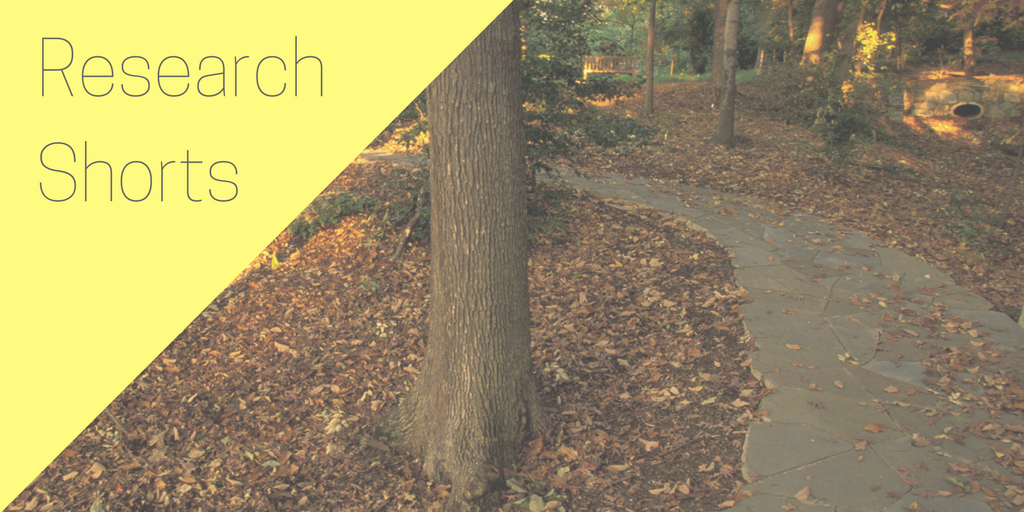At Nature Sacred, we keep a close eye on the academic research being published around nature, health, and wellbeing. Via Research Shorts, each month we take what we see as some of the most interesting work being published and create a brief summary for our readers — enabling you to be in the know, even if you’re short on time.
A Brief Summary of the Research
Genetic research doesn’t just tell you about your eye color or your ancestry. When combined with environmental factors, your genes shape your likelihood to develop neurological conditions, breast cancer, and even caffeine consumption. A new article predicts health outcomes when genetic and environmental risks for Alzheimer’s disease are present. It is one of a handful of recent studies linking air pollution and Alzheimer’s risk. The article concludes that a likelihood of developing Alzheimer’s disease when one has a gene variant (MTHFR C677T) increases if exposed to chronic air pollution.
The closer you live to freeways and factories, the more you are breathing in microscopic pollutants. The smaller the pollutant particle, the more likely it will enter the human body and block brain function. A steady body of research shows that vegetation acts as a physical barrier in mitigating harmful exposure to pollution and noise. When this body of research is considered together, a compelling urban planning argument exists for urban trees and vegetation as essential elements for community health. As the world population continues to move into cities, the layout of cityscapes, roadways and green spaces play an increasingly significant role in health.
What you need to know:
- Previous research links air pollution to cognitive decline. This study further defines a link between a specific gene, Alzheimer’s disease and air pollution.
- This study compared data across a worldwide population set. Risk was higher in Asia (Japan, South Korea, China, India), Iran, and the U.S.
- The authors suspect pollution diminishes enzyme functions and methylation pathways in the brain that otherwise buffer against chronic diseases.
- Previous research suggests urban vegetation buffers noise, filters pollution and supports brain health.
A word from one of the authors:
“Additional studies are needed to examine the roles of epigenetic factors in the methylation and metabolism pathways. In the meantime, proactive strategies could be implemented in cities with significant air pollution to prevent Alzheimer’s disease and promote the health of susceptible populations.“– Suh-Mian Wu, Yuanpei University of Medical Technology and Chang Gung University

